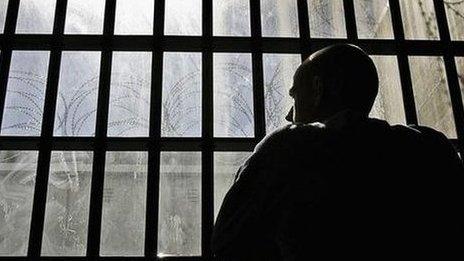Michael-Paul Hamblett-Sewell found not guilty of Kadeem Blackwood murder
- Published
Michael-Paul Hamblett-Sewell and his parents had always protested his innocence
A former gang member accused of murdering a 15-year-old boy under the joint enterprise law has been found not guilty following a third trial.
Michael-Paul Hamblett-Sewell was prosecuted despite a friend admitting he pulled the trigger of the gun which killed Kadeem Blackwood in Derby.
The 25-year-old was originally found guilty and given a life sentence, and has been in prison since he was 19.
Joint enterprise has been criticised by campaigners and some lawyers.
Mr Hamblett-Sewell's family had maintained he should never have been charged with murder.
His mother Wendy Hamblett said: "He's very relieved. He should have never been there in the first place.
"At the end of the day justice has been finally done."
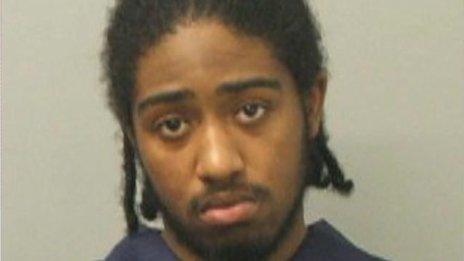
Michael-Paul Hamblett-Sewell, now 25, has been in prison since he was 19
He is now free after being in custody since his arrest on 12 November 2008.
Kadeem was murdered with a sawn-off shotgun in Caxton Park the evening before.
The trials heard how Kadeem was a member of the Browning Circle Terrorists (BCT), and was due to have a "one-on-one" fight against 18-year-old Callum Campbell, a member of rival gang, the A1 Crew.
Members of both gangs - including Mr Hamblett-Sewell, from the A1 Crew - were at the park to watch.
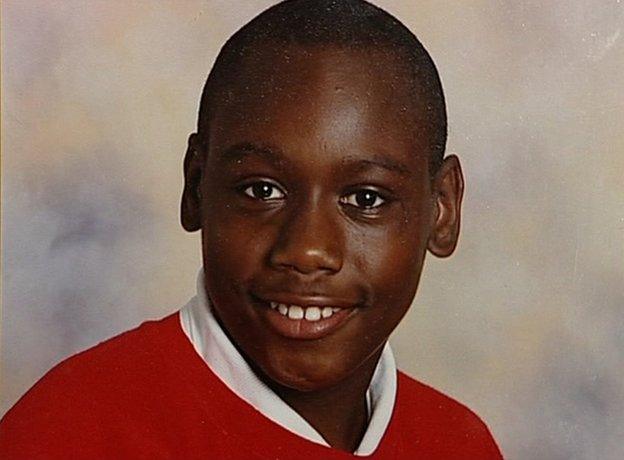
Kadeem Blackwood was 15 when he was murdered in Derby by Callum Campbell
Kadeem pulled out a knife, the trial heard, but was shot by Campbell with a sawn-off shotgun after making what the defence described as a "split-second decision".
The prosecution alleged Mr Hamblett-Sewell was a senior member of the A1 Crew and had gone to the park knowing the gun would be used on Kadeem.
But the defence said there was no evidence to support the prosecution's "theory".
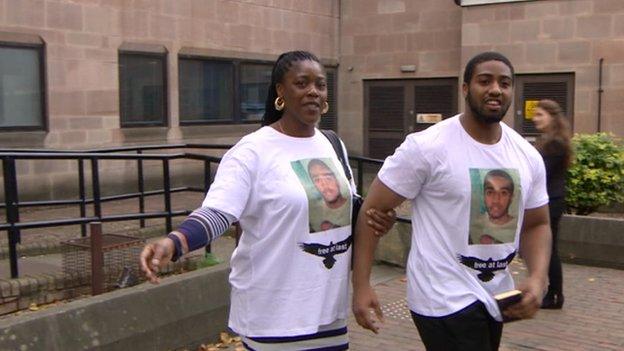
Michael-Paul Hamblett-Sewell's mother said justice had finally been done
Paul Bacon, a solicitor who has represented defendants accused of joint enterprise murders, said the law can be "very unfair".
"I think it's drawing people in who would otherwise have been found not guilty. It makes it very difficult for those parties to prove their innocence," he said.
"This is one area where everybody who is involved in the justice system, the lawyers, the judges, the police, the prosecutors, are not comfortable with it. And because there's that element of 'Is this right?' we need clarification, we need guidance more than anything."
However, he said joint enterprise had helped convict people in some "very difficult" and "quite historic" cases, including the murder of Stephen Lawrence.
- Published30 September 2014
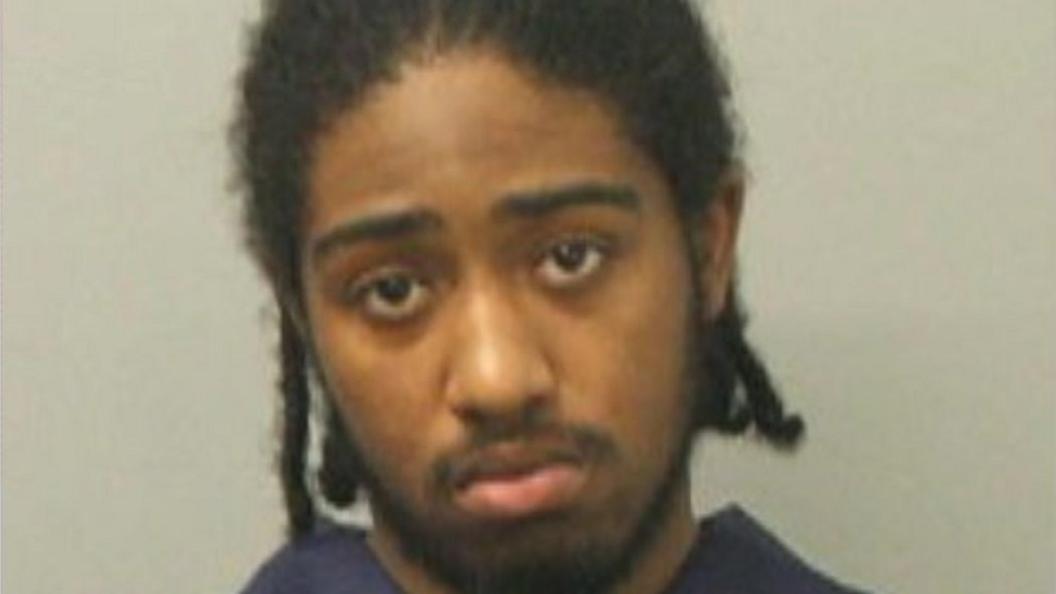
- Published25 September 2014
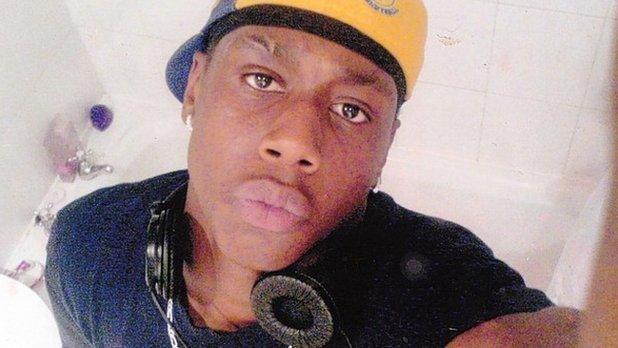
- Published7 July 2014
